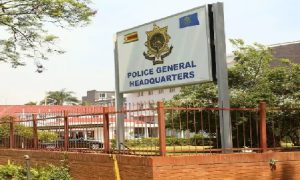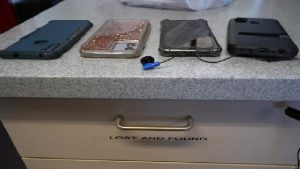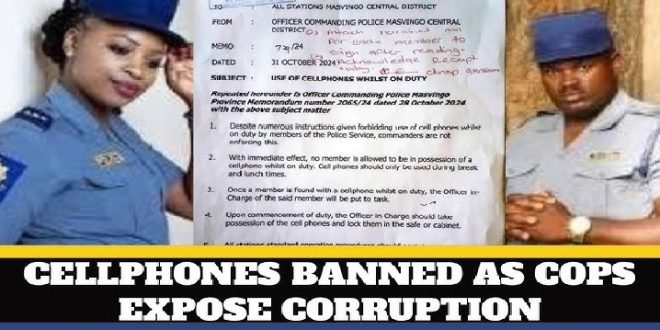07-11-2024
HARARE: Zimbabwe’s government has banned “with immediate effect” police officers from using mobile phones while working.
The ban is contained in a memo, ordering police officers to abandon their private communication gadgets while on duty.
 All officers are required to surrender their mobile phones to their supervisors once they get to their stations and only use them during their break time.
All officers are required to surrender their mobile phones to their supervisors once they get to their stations and only use them during their break time.
No reasons were cited for the ban in the memo but it is widely believed this could be part of efforts to curb police corruption.
It comes a few days after two traffic enforcement officers were arrested in the capital, Harare, after a viral social media video exposed those taking bribes from public transport vehicles.
Police spokesperson Paul Nyathi described the two detained officers as “bad apples who do not deserve to be serving in the police service”.
The new mobile policy seeks to reinforce what appears to have been a previous order addressed to all stations late last month.
It said “despite numerous instructions given forbidding use of cell phones whilst on duty by members of the police service, commanders are not enforcing this”.
“No member is allowed to be in possession of a cell phone whilst on duty. Cell phones should only be used during break and lunch times,” reads the circular.
Officers in charge of police stations have been ordered to enforce the ban, with threats issued against those who do not comply.
“Once a member is found with a cell phone whilst on duty, the officer in-charge of the said member will be put to task,” the memo adds.
 Police are perceived to be among the most corrupt institutions in Zimbabwe because of low salaries and poor working conditions.
Police are perceived to be among the most corrupt institutions in Zimbabwe because of low salaries and poor working conditions.
When Robert Mugabe was ousted as Zimbabwe’s president in 2017, his replacement, Emmerson Mnangagwa promised a new start for his country’s people but as President Mnangagwa seeks re-election at the polls later this month, Zimbabweans are grappling with the same problems high inflation, poverty and a climate of fear.
The Zanu-PF leader, who is rarely seen without a scarf in the colours of Zimbabwe’s flag around his neck, brushes such criticism aside, saying the nation will be “lost” if it fails to back him – his supporters pointing to a mining boom and other foreign investments during his time in office.
Known as “the crocodile” because of his political cunning, he came to power after a military takeover and mass demonstrations forced Mugabe, long-time leader and Mnangagwa’s former mentor, to resign.
The military revolt was sparked by Mugabe sacking Mnangagwa as his vice-president. Mnangagwa, who lived up to his nickname and snapped back, may have unseated Zimbabwe’s only ruler, but he is also associated with some of the worst atrocities committed under the ruling party since independence in 1980.
Some of his former comrades in the liberation struggle used to describe him as a “very cruel man” but his children see him as a principled, if unemotional, man. His daughter, Farai Mlotshwa, a property developer and the eldest of his nine children by two wives once described him as a “softie” and as he sought to woo foreign investors and dispel his ruthless reputation in 2018, he told media “I am as soft as wool. I am a very soft person in life.”
The exact year of Mnangagwa’s birth is not known but he is thought to be 80.
Born in the central region of Zvishavane, he is a Karanga, the largest clan of Zimbabwe’s majority Shona community. (Int’l News Desk)
 Pressmediaofindia
Pressmediaofindia




